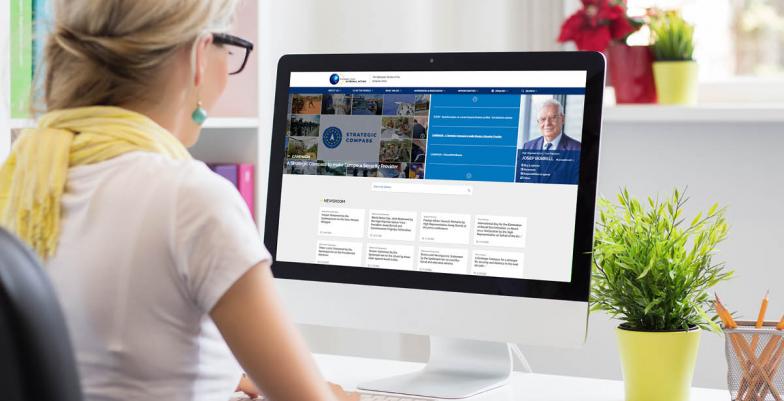The European Union and ASEAN

ASEAN, 2025
The EU is a reliable, long-term partner for the Association of Southeast Asian Nations (ASEAN) based on our shared belief in an open and inclusive rules-based multilateral order, a commitment to regional integration, and a continuous drive to promote peace, stability and prosperity.
Building on nearly fifty years of diplomatic relations, the EU is deepening its engagement and is a committed security partner to ASEAN, supporting regional solutions in maritime security and digital resilience, and to promote shared prosperity.
With Foreign Direct Investment (FDI) stocks of over €330 billion as of 2024, the EU’s is the second largest foreign investor into ASEAN. It has concluded Free Trade Agreements (FTAs) with Singapore, Vietnam and Indonesia, and negotiations are ongoing with Thailand, the Philippines and Malaysia.
EU and ASEAN: A long-standing political partnership
The EU and ASEAN will mark fifty years of diplomatic relations in 2027. Recognising the global relevance of ASEAN, the EU and ASEAN elevated their relationship to a strategic partnership in 2020. They have continuously deepened ties on trade, digital infrastructure and security since becoming dialogue partners in 1977.
Bilateral relations are guided by the Nuremberg Declaration on an EU-ASEAN Enhanced Partnership, adopted in March 2007. The Declaration sets out the long-term vision and commitment of both sides to work together. With the adoption of the ASEAN Charter in 2008, the EU initiated formal diplomatic relations with ASEAN in March 2009, followed by the EU countries. In 2012, the EU became the first regional organisation to accede to the Treaty of Amity and Cooperation in Southeast Asia (TAC) — an important milestone, boosting the EU's engagement with Southeast Asia in the political and security arenas.
Deepening cooperation for shared security
The EU is a founding member of the ASEAN Regional Forum (ARF), which aims to foster constructive dialogue and consultation through confidence-building and preventive diplomacy in the Asia-Pacific region with a view to ensuring peace, prosperity and stability in the Indo-Pacific region.
The EU engages in regular strategic consultations on foreign policy, defence, and regional affairs, as well as economic and trade matters, environmental issues, energy, and other policy areas. It supports regional solutions in maritime security and digital resilience through partnerships such as Enhancing security cooperation in and with Asia (ESIWA) or Critical Maritime Routes Indo-Pacific (CRIMARIO).
Supporting sustainable growth and shared prosperity
The EU-ASEAN continuous engagement contributes to both our regions’ stability, growth, and prosperity. ASEAN is a dynamic, high-growth region which is increasingly at the centre of global supply chains.
Together, the EU and ASEAN account for 14% of the world’s population, about 20% of global GDP, and about a quarter of all world trade.
-
The EU is ASEAN’s third-largest trading partner, after China and the US.
-
The EU is the second-largest source of Foreign Direct Investment (FDI) into ASEAN, with total FDI stocks valued at over €330 billion as of 2024.
-
The EU has concluded Free Trade Agreements (FTAs) with Singapore and Vietnam; negotiations are ongoing with Thailand, the Philippines, and Malaysia, and they are almost final with Indonesia after the Commission President, Ursula von der Leyen, and Indonesian President, Prabowo Subianto, reached a political agreement on negotiations in early July 2025.
EU and ASEAN: Advancing sustainable connectivity and the twin green and digital transitions
The EU aims to mobilise up to €10 billion in sustainable infrastructure investment in Southeast Asia under its Global Gateway strategy. Cooperation focuses on advancing sustainable connectivity, green energy and climate resilience, and making strategic investments in digital connectivity, education and skills development.
Both sides are working together to deliver the EU-ASEAN Sustainable Connectivity Package (SCOPE). This package supports cooperation in space policy, rolling out a clean energy grid region-wide, and advancing digital trade.
For the period 2021-2027, the EU has earmarked €180 million with ASEAN to support key areas aligned with the EU-ASEAN Strategic Partnership. Flagship cooperation initiatives include:
-
EU–ASEAN Green Initiative
-
Team Europe Initiative on Human Rights and Rule of Law
-
Enhanced EU–ASEAN Dialogue Instrument (E-READI)
Fostering stronger people-to-people and educational ties
People-to-people and educational exchanges are a key element of the EU-ASEAN partnership. Over 20,000 students, academics, and staff from ASEAN countries have taken part in Erasmus+ exchanges, participating in mobility and capacity-building programmes throughout Europe.
The EU Support to Higher Education in ASEAN Region (EU SHARE) programme promotes student mobility, higher education reform, and regional harmonisation of academic standards in ASEAN. The objective of the EU SHARE programme is to enhance the quality, regional competitiveness and internationalisation of ASEAN higher education institutions and students, and strengthen regional cooperation.









